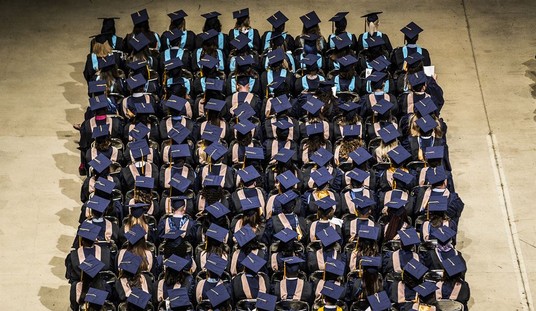I know I'm pretty doom and gloom about AI as of late, and for good reason. While I consider it to be an awesome advancement for mankind that could be the next step in societal evolution, I think the pace with which we're developing it is so fast that we have very little time to truly understand what it is we're creating, and how it affects us.
I've written miles of text on this subject, and will likely write miles more, but one thing I think we're careening into at a dangerous rate is the at-home robot, which every AI company seems to be either directly trying to be the first to do, or be a part of being first in some capacity. Tesla CEO Elon Musk said he believes the at-home robot servant will revolutionize civilization to the point where money will become obsolete, and humanity will finally arrive in what will effectively be a Utopia of creation and freedom.
As I wrote last week, I don't share that enthusiasm. In fact, I'm not entirely sure how his robot-worker future doesn't create some sort of crisis on both an economic and individual level, down to each person's mental health:
Musk says there will be no need for money at that point, but doesn't exactly spell out how that would work. Without some form of compensation for one's time, motivations drop drastically to do anything. Consumerism is still going to take place to continue the economic engine that allows for everything from production to upkeep. If robots have taken our jobs and we're just left with all the free time in the world (a horrifying prospect), then we're left to do nothing but consume. Even in the act of creation, you have to purchase things like seeds to grow plants, supplies for art, or engine parts and figurines for hobbies.
Unless Musk is envisioning an entirely new kind of economic system that he hasn't revealed yet, then he's entirely wrong, and money will still be needed. With all the jobs gone to robots, money will be harder to come by unless you're a robot manufacturer like Musk. Something akin to a UBI will be necessary, and who will provide that?
The government? No thanks?
Musk? He'd effectively become king.
Read: The Easy Future Elon Musk Is Predicting Actually Sounds Like a Nightmare
But there is one aspect that I think will be an incredible boon to our civilization, and it's something Elon Musk was actually called crazy for, including by me initially. However, the more I thought about it, the more I think he's not so crazy in this one regard.
I think AI will, indeed, help increase our dangerously low birth rate.
Musk has been sounding the alarm on our decreasing birth rates that have sunk so low as to dip below replacement levels.
“USA birth rate has been below min sustainable levels for ~50 years”
— Tesla Owners Silicon Valley (@teslaownersSV) November 28, 2025
Elon Musk pic.twitter.com/AG8TZEUsFe
Musk said that AI will "one-shot the human limbic system," meaning it will easily hijack reward-seeking behaviors like sexual desire, pair bonding, parental attachment, and more. He's not wrong, and it's something I've been sounding the alarm on myself for some time, especially for men who AI companions will far more easily seduce during the male loneliness epidemic. Musk admittedly believes that "counter-intuitively," AI will increase the birth rates.
AI will not be able to do that to any major degree... at least not without a body. Simply getting messages promoting procreation from an AI with another human is all well and good, and may lend in some way to encouraging population growth, but not in any substantial way. AI would need to be able to help in the everyday task that is child-rearing directly.
And as I hear more about Optimus, the more I'm able to peer into Musk's mind, and the more I realize that he's probably not as crazy as I thought.
At-home robots could actually lessen the pains of parenting by a great degree, thus allowing the limbic system's desire to procreate to do so without as much anxiety or even financial burden.
Allow me to explain, and we'll use Optimus as the example of the robot.
These robots will likely cost somewhere around $20,000 to $30,000. If Optimus achieves the learning capability, dexterity, and strength Musk is developing, then what you'd effectively have is a reliable "baby-sitter" that never gets tired, never runs out of patience, and requires no wages. The aims that I've read in the outlook are that Optimus wouldn't just do basic chores like washing and folding laundry, doing the dishes, etc., but would also be able to prepare feed, change, burp, and clean babies.
To be clear, the robots aren't up to that level of dexterity just yet, but at the speed these are being perfected, I imagine it won't be long until they are. I'd give it, at most, two to three years. By 2028, I can imagine that certain levels of autonomy in childcare will be a huge selling point for robots like Optimus, despite it being in its initial stages.
Moreover, as the child ages, the robot that never tires or becomes impatient will be able to keep up with toddler stages, and what's more, begin teaching the child basic skills, encourage specific behaviors, and raise the child with beliefs that you approve of. If autonomy improves past a certain level of competence and ability, then you've effectively got a walking, talking school and child-care specialist.
As of this writing, the national average of childcare from birth to 18 costs somewhere in the $300,000-plus range, give or take thousands based on your economic position and location. Food can cost over $60,000 during those first 18 years, and daycare can cost between $10,000 and $15,000 annually — and these costs only go up the more children you have.
Optimus would directly attack some of the biggest childcare expenses, including babysitting, home education, and housekeeping.
Does this mean you can safely leave the robot to effectively raise your children? Not by a long shot. You're still very much the main part of the show, but the Optimus is going to effectively become a big part of your support system.
Now, you may not be comfortable with some clanker helping raise your kids, educating them, and fostering their growth, but I would say that this is probably going to be a sentiment that dissipates quickly once the benefits start to demonstrate themselves in households where money becomes less of an issue, thanks to an Optimus in the home. I would also remind everyone that they're already relying on AI across the first world to teach themselves new things every day. A robot being your kids' tutor in a home school situation is probably going to become the standard in about a decade.
Then there are the healthcare benefits. I anticipate the elderly will benefit from this more than children, but I can easily foresee robots being directly tapped into someone's vital signs via a device like a bracelet. For the elderly, it could detect irregular breathing, flag deteriorating vitals, and notify health professionals from their own internal communication systems. It could prepare medicines and assist in lifting and transportation. Then there are the added passive benefits of constant cleanliness from the robot(s), with diligent and unceasing sanitation.
The Optimus bot will be well worth it for the elderly, but I'd say the costs for an Optimus will be more than paid for by its uses in childcare alone.
The kicker here is that many people still want to have children but have a ton of anxieties around costs, time, and competence. Education is a huge factor for many who increasingly don't want to bear the burden of paying for the exorbitant costs of a system that may or may not benefit their child. Time is a huge issue as well, with many parents killing themselves trying to balance making enough money in this modern age to support a family and being a good parent.
I can see Optimus clearing some of that off the board and opening the door to more children being born as a result, and while there are a lot of pros and cons to consider, that pro alone makes a strong argument for the existence of the at-home robot.














